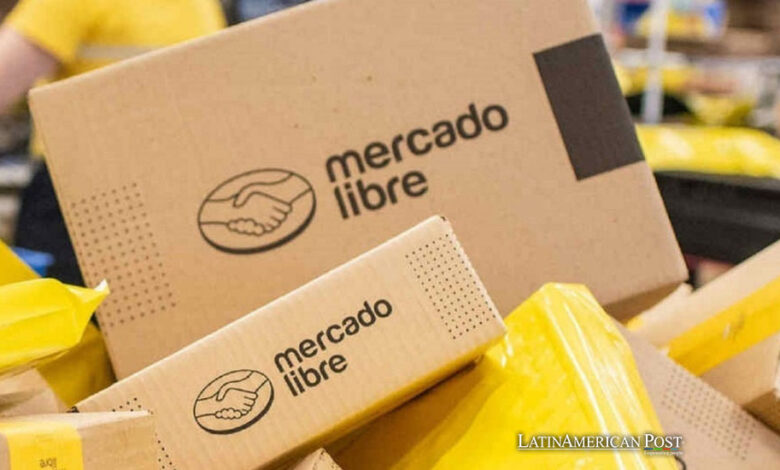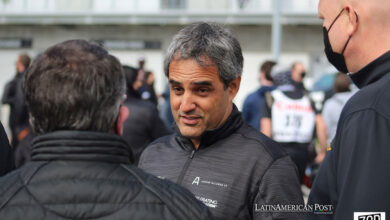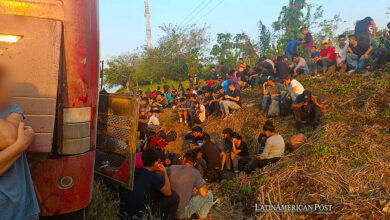MercadoLibre Surges: Strong Q1 Performance Across Latin America

MercadoLibre, the e-commerce titan of Latin America, reported a significant 71% surge in Q1 net profit, outpacing expectations with robust growth in Brazil and Mexico despite economic headwinds in Argentina.
MercadoLibre, Latin America’s largest e-commerce platform, has once again demonstrated its formidable presence in the region’s digital economy, posting an impressive 71% increase in first-quarter net profit. This surge to $344 million from last year’s figures exceeded analysts’ $314 million forecast, showcasing the company’s strategic foresight and resilience in navigating and thriving amidst diverse market conditions in Latin America.
MercadoLibre’s Expansive Reach
Operating across 18 countries and owning the fintech arm Mercado Pago, MercadoLibre has cemented its status as a powerhouse in online retail and financial services. Mercado Pago, which provides digital payment solutions, has been a key driver of MercadoLibre’s success. This quarter’s standout performances came from Brazil and Mexico, MercadoLibre’s largest markets, where sales in the company’s main marketplace business saw increases of 36% and 42%, respectively, in Gross Merchandise Value (GMV).
Despite the buoyant sales figures, MercadoLibre’s journey wasn’t without its challenges, particularly in Argentina—its birthplace and one of its key markets. Argentina’s volatile economic climate, marked by sharp currency devaluation and increasing logistic costs, has notably squeezed margins. CFO Martin de los Santos highlighted these struggles: “We obviously continue to run a profitable business in Argentina. It’s just that it is not as profitable as it used to be.” However, MercadoLibre’s resilience is evident as it continues to operate profitably in these challenging conditions.
Nonetheless, MercadoLibre’s overall financial health looks robust. The company reported a total EBIT of $528 million for the quarter, a 29% rise from the previous year and surpassing the $488 million predicted by analysts. This financial success is partly attributable to strategic and operational adjustments and reporting changes, including the reclassification of interest income and expense lines for Mercado Pago, which positively impacted net revenue by $99 million. The company’s strong financial performance is a testament to its ability to adapt to changing market conditions and its effective management of operational and financial risks.
Expansion Strategy
Another significant facet of MercadoLibre’s strategy has been its focus on expanding its fintech services. The fintech unit saw its credit portfolio grow by over $600 million from the previous quarter, reaching $4.4 billion. This is the most substantial increase since early 2022. Improvements in delinquency rates have also buoyed confidence in expanding credit services to consumers and merchants. The over-90-day delinquency rate, which is a key indicator of credit risk, improved to 17.9% from 18.7%. This signifies that MercadoLibre’s credit management and underwriting practices are effective, reducing the risk of default and ensuring the health of its credit portfolio.
The remarkable growth in Brazil and Mexico can be attributed to strategic market penetration and an increasing shift toward online shopping, a trend accelerated by the COVID-19 pandemic. The pandemic led to a surge in online shopping as consumers were confined to their homes, and MercadoLibre was quick to capitalize on this trend. However, the sustained growth in these markets is not solely due to the pandemic but also to changing consumer behaviors. In these countries, MercadoLibre has expanded its marketplace offerings and significantly enhanced its logistics and payment infrastructure, enabling smoother customer experiences and bridging the gap between online and offline commerce.
However, the landscape in Latin America remains diverse and challenging. While MercadoLibre has seen considerable gains, the varying economic conditions across the region—from Brazil’s recovery efforts to Argentina’s financial woes—pose continuous challenges that require adaptive strategies and robust risk management. For instance, if the economic situation in Argentina deteriorates further, it could impact consumer spending and, consequently, MercadoLibre’s sales. Therefore, the company needs to be prepared to adjust its operations to the changing economic conditions in each market.
Factors Influencing Growth Trajectory
MercadoLibre’s ability to maintain its growth trajectory will depend heavily on several factors. These include navigating the inflationary pressures in its key markets, expanding its fintech offerings to more regions, and enhancing its logistics network to efficiently handle a higher volume of transactions. Moreover, as digital commerce evolves rapidly, staying ahead of technological advancements and potential regulatory changes will be crucial. For instance, if new regulations are introduced that increase the cost of cross-border transactions, it could impact MercadoLibre’s profitability. Therefore, the company needs to stay vigilant and adapt its operations to any regulatory changes.
Also read: ECLAC: Latin America Lag in Sustainable Development Goals
MercadoLibre’s performance in the first quarter of 2024 is a testament to its resilience and strategic foresight in a region as dynamic as Latin America. As the company continues to innovate and adapt, it remains a critical player in defining the region’s future of e-commerce and financial services. For instance, one of their strategic initiatives was to expand their fintech services, which saw its credit portfolio grow by over $ 600 million from the previous quarter, reaching $ 4.4 billion. With a balanced approach to growth, risk management, and innovation, MercadoLibre is well-positioned to navigate the complexities of Latin American markets and continue its robust growth and profitability trajectory.





